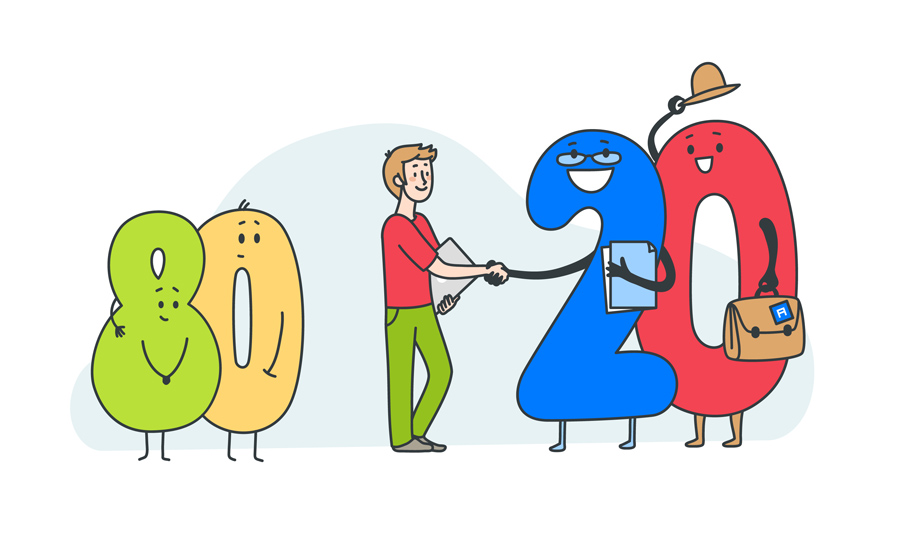Brother
Professional
- Messages
- 2,590
- Reaction score
- 533
- Points
- 113

In the modern world, people have too many things to do and have too many opportunities. In addition to virtual attacks, an incessant stream of work and personal requests, we are daily faced with a choice: which of our hobbies to spend time on, what projects to do, where to go to study. But is it possible to change the rhythm of life today? The author of the book "Essentialism" Greg McKeon is sure that yes - for this you need to become an essentialist.
Stop and think calmly. Ask yourself a few questions.
1. Are you satisfied with your job? Do you like the tasks that you solve every day? Are you really doing what is important to you, and not just important, but more important than anything else?
If in doubt, list the alternatives. Let there be as many as you like, but you should choose only one, maximum two. It's not an easy decision, but it's impossible to succeed by splattering over a dozen “priority” cases. Look not for good opportunities, but great ones.
2. How often do you answer “yes” to requests from colleagues and acquaintances? How many times do you mentally curse everyone who is wasting your time? Time for your family or hobby.
Learn to refuse others, even if you feel uncomfortable. You don't want to waste your life on other people's business, do you? The freedom is worth enduring a few minutes of discomfort.
3. Do you have a place where you can meditate alone without being distracted by Twitter and Facebook?
It must necessarily be in a person who seeks to live consciously. Sometimes you need to be alone with your thoughts in order to "reboot", to finally finish a project or to make an important decision.
4. Are you too serious? When was the last time you played?
Recent research by scientists has shown that the human brain develops during play, becomes more creative and adapts more easily to new conditions. If you want to learn how to see many alternatives, be able to analyze and make choices (all this is characteristic of essentialists), then start playing. By the way, the game is also a magic cure for stress.
5. How much sleep do you get? Think you can get more done if you shorten your sleep time?
But good sleep is essential for your body. If you systematically spend nights at work, then sooner or later you will lose the ability to concentrate, become less attentive, forget what it means to think clearly. What kind of success can we talk about then? Take the advice of the Essentialists: bet on your health, you can't go wrong.
6. Have you ever given up on a job as soon as you realized its futility?
Most people fail to do this. As a rule, it is difficult for us to admit a mistake and abandon a project in which we have already invested a lot of effort and money. Essentialists are much wiser and bolder: they can stop in time to do something more rewarding.
Essentialism teaches us to live not how others want from us, but how we ourselves want. a small reminder for the aspiring essentialist.
Try starting tomorrow to slow down and do less, but better - you will like it. Verified by Steve Jobs, Leo Tolstoy, Michael Jordan, Warren Buffett and many more.



